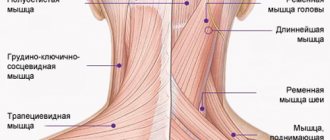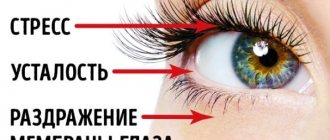Absent-mindedness is a malfunction of the nervous system. Distracted attention in adult men and women can be considered normal if it occurs occasionally. For example, at the end of a busy day at work, many people become inattentive. Chronic fatigue, lack of sleep or heavy physical activity, and somatic deterioration of well-being during a cold give a similar result.
But what to do if absent-mindedness and forgetfulness follow a person everywhere? If, due to your inattention, relationships with loved ones deteriorate, problems arise at work or in school. There is only one answer - to look for the reasons for absent-mindedness, inattention, and forgetfulness. Let's take a closer look at why absentminded attention occurs in adult women and men and how to treat it. But first, let’s define what absent-mindedness is in psychology.
What is absent-mindedness
Distraction of attention is the inability to concentrate on one thing (object, phenomenon, matter) for a long time. Simply put, these are problems with voluntary attention.
Voluntary attention is a type of attention in which a person needs to make volitional efforts to focus on something. There is also involuntary and post-voluntary attention. In the first case, we are talking about weak-willed attraction of attention: a door slammed, a dog barked, a siren screeched, etc. In the second case, we are talking about concentrating attention through volitional efforts, but to a lesser extent than with voluntary attention.
Distraction of attention is not an independent disease. As a rule, it occurs with psychopathy, asthenia, atherosclerosis, hypertension, chronic cerebrovascular insufficiency, diabetes mellitus, and hypothyroidism. In healthy people - against the background of fatigue.
In children, absent-mindedness is often combined with ADHD - attention deficit hyperactivity disorder.
Symptoms
Imaginary and genuine absent-mindedness have completely different symptoms, since in the first case this, in itself, is not a sign of a disease, but in the second it can indicate the development of a serious pathological process.
Thus, absent-mindedness can be characterized by the following clinical signs:
- headaches, dizziness;
- deterioration of memory and cognitive abilities;
- deterioration in performance, loss of professional skills;
- irritability, sudden mood swings;
- traits may appear in a person’s behavior that were not previously characteristic of him;
- blood pressure surges;
- sleep cycle disturbance – drowsiness during the day, inability to sleep at night;
- feeling tired even after a long rest;
- decreased activity, including sexual activity;
- inability to concentrate on small details;
- a person may begin to lose personal belongings and forget to perform usual operations.
In children, absent-mindedness can manifest itself as follows:
- the child refuses to perform those operations that require increased attention and perseverance;
- school failure;
- slowness;
- can switch to another task without completing the previous one;
- sudden mood swings - activity and a cheerful mood can be replaced by attacks of hysteria for no apparent reason;
- hyperexcitability;
- bad memory.
Manifestations of absent-mindedness
It should also be understood that the presence of such signs in a child does not always indicate the presence of any disturbances in the functioning of the body; it is quite possible that these are simply features of psychological development. However, consultation with a doctor is required.
Types of absent-minded attention
Psychologists distinguish three types of absent-minded attention:
- Functional. Absent-mindedness, inattention and forgetfulness are caused by monotonous, monotonous work. In everyday life, people call this “blurred eyes.” In addition, functional absent-mindedness occurs due to somatic health problems, against the background of insomnia or restless sleep, lack of sleep, and also due to headaches. Remember your condition after a sleepless night or during a cold. I'm sure your attention span leaves much to be desired. Like all people in a similar condition.
- Poetic. This is absent-mindedness due to daydreaming. It is always difficult for creative people to concentrate on one thing for a long time, especially monotonous ones. However, once they enter a state of flow, they can create for hours and even days. But we are talking specifically about creativity, about what interests them.
- Minimal. This is inattention due to excessive immersion in one’s own thoughts and personal experiences. For example, have you ever read a few paragraphs or a whole page of a book, and then caught yourself thinking that you didn’t understand anything because you were thinking about something else? Or has it ever happened that while communicating with someone you said: “Sorry, I overheard you and got lost in thought”? These are all examples of minimal distraction.
Separately, it is worth noting that absent-minded attention can be normal and pathological. The first includes forgetfulness due to fatigue. The second is inattention and forgetfulness, which have medical grounds. We'll talk more about the causes of concentration problems below.
Complications of pneumonia and their consequences
19.08.2020
With any cold, complications are very dangerous, which can lead to pneumonia . As a rule, pneumonia the lungs themselves and their tissues, and with complications from pneumonia the entire body can suffer.
Its main causative agent is streptococcal bacteria, although exposure to other bacteria or infections cannot be ruled out. The problem also lies in the fact that if treatment is incorrect or untimely, it will not be beneficial or, on the contrary, will worsen the situation.
If the disease was treated incorrectly or was not completely cured, then this is manifested by characteristic pain in the lungs . There may be both severe pain and slight tingling in different areas; they can be bothersome both constantly and periodically; severe shortness of breath can also be a clear symptom.
Gradually, the condition may become worse, which is why you will have to call an ambulance. As for the consequences, it all depends on how severe the pneumonia and how poorly or poorly it was treated.
It is worth understanding that some consequences can be very serious and even lead to death.
Signs of complications include:
- elevated temperature around 37-38 degrees;
- cough that does not stop even after illness;
- presence of shortness of breath;
- varying degrees of pain in the lungs or near the heart .
As for complications, they are divided into two types:
- “local” - expressed in respiratory failure, abscesses, pneumonia and bronchitis ;
- “general” - shock, sepsis, meningitis and failure develop.
As for the severity of complications, they will also directly depend on the treatment performed.
The obvious consequences include the development of:
- pleurisy - as a result of its development, fluid will accumulate in the pleura, and if infections or bacteria are still present in it, this can lead to the formation of pus in the body. In addition, immunity and resistance to other diseases are significantly reduced;
- Lung abscess – typical for those who suffer from chronic diseases. During it, pus accumulates in the body, the fingers and toes become swollen, and the phlegm in the mouth will have an unpleasant taste. It is accompanied by high fever, weakness, headache and a strong, prolonged cough;
- respiratory failure - a person cannot breathe normally, which sometimes causes the skin to turn blue, bleeding, wheezing and coughing. If left untreated , in severe cases it can be fatal due to the inability to breathe normally;
- sepsis - the blood , which subsequently causes pus to accumulate in the body, which is why it is very life-threatening. The problems are accompanied by extremely high fever (above 40 degrees), severe headaches and vomiting ( nausea ).
If the consequences are not treated , it can lead to toxic or infectious shock. The symptoms of its manifestation may be different, but regardless of them, it can be life-threatening, and therefore treatment should not be delayed.
Published in Pulmonology Premium Clinic
Manifestations of absent-minded attention syndrome
We have already examined the general specifics of the manifestations of absent-minded attention syndrome. However, in practice there are different manifestations:
- insufficient concentration – problems with remembering what you see or hear;
- rigidity – inhibition of attention, problems with switching attention from one object (phenomenon) to another;
- unstable attention - involuntary and very rapid jumping from one subject to another, forgetfulness.
The first type often occurs against the background of fatigue, anxiety or lack of sleep. The second is for hypomania and epilepsy. The third is for ADHD.
Interesting! Scientists distinguish a special type of memory. People of science tend to forget everything that does not relate to their professional activities. The same effect is noticeable in some other professions.
Causes
Causes of absent-minded attention in adults:
- Exhaustion and overwork. Hard work without rest, weekends and holidays can lead to this. Particularly vulnerable are people whose profession involves intellectual work, for example, teachers, writers.
- Reluctance to do something. In some cases, forgetfulness is an attempt by the brain to protect us from unpleasant information or an unpleasant task.
- Working in a multitasking environment. If a person is literally torn between several jobs, tasks or completely different areas of life, then very soon his memory and attention begin to fail.
- Other attention disorders, such as ADHD.
- Other diseases, for example, alcoholism, drug addiction. This also includes working in hazardous industries and other intoxications of the body.
- Hormonal changes. We are talking about pathologies of the thyroid gland or other problems with the production of hormones, as well as about natural hormonal changes, for example, during pregnancy in women and during adolescence in children.
- Age-related changes. Many adult women and men over the age of 30 experience absent-mindedness, forgetfulness and poor memory. This may be due to a lack of intellectual activity or, conversely, to mental overload. It is also associated with bad habits and stress. As a treatment, it is recommended to reconsider your lifestyle.
Note! Distracted attention can be a consequence of intellectual, physical or psychological exhaustion.
Symptoms
Signs of absent-mindedness:
- You cannot focus on one thing for a long time. Every now and then you need to drink tea or coffee, smoke, scroll through your social network feed, chat with a friend, etc.
- You constantly forget something: meetings, calls, shopping lists, agreements, some things.
- You often lose things or don't remember where you last put them.
- In written (printed) work, you make so-called “careless” errors. For example, you mix up letters, miss the endings of words, or copy incorrectly from the board or book.
- You forget what happened last week or don't remember entire chunks of your life.
- You immediately forget the names of new acquaintances or information that was told to you.
If all this haunts you every day, in every activity for a long time, then it’s worth thinking about the causes of problems with attention.
What is attention from a psychological point of view?
Attention is a concept in cognitive psychology that represents the extent to which we process specific information that our brain receives from the environment.
Thanks to attentiveness, the subject’s successful orientation in the surrounding space is ensured, and it also ensures a complete and clear reflection in the psyche. The object of attention falls into the center of our consciousness, other elements are perceived weakly, not clearly, but at the same time the direction of our attention can change.
There are several types of attention:
- Involuntary type . While working with this type of attention, a person does not make any effort of will to concentrate, he does not even set a goal for himself.
- Arbitrary type . During this type, a person makes an effort of will to focus on a specific object.
- Postarbitrary type . During this type of attention, a decrease in volitional efforts is characteristic, but the goal of being attentive remains.
How to get rid of absent-mindedness
How to deal with absent-mindedness? Exercise and lifestyle changes will help. At first, in order not to forget anything important, you can use lists, alarm clocks, and visual notes. For example, you can make a to-do list in the evening and hang it above your desk. In principle, many people cannot imagine life without a diary. So this technique is suitable for everyone.
How to become more attentive? Regularly perform several exercises to improve concentration:
- Watch your fingers. Keeping your back straight and your shoulders back, take a comfortable position on a chair or armchair. Raise your right arm to shoulder level and move it to the side. Then turn your head to the right, concentrate your gaze on the fingers of the abducted (right) hand. After a minute, do the same with your left hand and turn your head to the left.
- We follow the arrow. Watch the movement of the second hand for five minutes. Don't look away and don't get lost in your thoughts. Think only about the arrow and its movement. If you get lost, start over.
- We draw a line. Take a pen and paper. Start drawing a straight line, don’t get distracted, think only about this process. If you find yourself distracted, make a small note and continue to draw a straight line. A good result is considered if you can draw a line for 2-3 minutes without being distracted by anything. This exercise helps not only to increase concentration, but also to track the dynamics of training. If the trend is positive, you will see that there are fewer and fewer nicks each time. You can also use this exercise to check your initial level of concentration.
At the same time, do not forget to train your memory:
- We repeat the row. Place several objects in a row in front of you. Look at them for 30-60 seconds. Turn away or close your eyes and recreate the order in which things are located. You can arrange objects not in a row, but, for example, in a square.
- We study the details. Look at an object for a minute. Then close your eyes and try to describe in detail what you saw. Open your eyes and compare. You can complicate the task: remember and describe several objects at once.
- Let's repeat the day. Before going to bed, try to remember the faces and voices of all the people you interacted with. And also remember all the events of the past day.
And, of course, it’s useful to memorize poetry, read, and solve crosswords. All this trains the memory and prevents the brain from relaxing.
If we are talking about functional absent-mindedness, then it is enough to get a good rest. Perhaps you should take a vacation or change jobs.
If absent-mindedness is caused by mental disorders or physical illnesses, then medical treatment is indicated. It is aimed at the root cause, and not at the absent-mindedness itself.
If absent-mindedness, poor memory, weakened concentration and forgetfulness are associated with organic lesions, somatic diseases, hormonal disorders, then medical treatment is indicated. Only a psychologist can identify the exact cause of cognitive problems and select the optimal treatment.
Prevention
To prevent absent-mindedness and forgetfulness, live by the following rules:
- Adjust your sleep schedule. An adult needs to sleep at least 7 hours, and it is important to go to bed and get up at the same time. You cannot leave the regime even on a day off. Make healthy sleep your habit, watch it.
- Get plenty of rest. Alternate physical and intellectual work, take short breaks during the working day and set aside an hour for lunch. It is recommended to take a 15-minute break every 45 minutes of work.
- Play sports. Regular exercise helps maintain normal hormonal levels, blood circulation and oxygen exchange. In addition, physical activity helps relieve psychological stress and improves mood.
- Take a walk. It is especially useful to walk in the morning and before bed. You can combine sports and walking. For example, you can quickly walk a couple of stops to work. Try to avoid transport and walk as often as possible.
- Develop awareness. This means that you need to live everything according to the “here and now” principle, give up autopilot, live everything at the level of thoughts, feelings and body. Make it a rule to do small workouts: hold a toothbrush or spoon in your left hand rather than your right, pronounce and constantly change your route to work, etc.
- Plan. It's time to turn to schedules, lists and charts. Do not take on several tasks at once, do not accumulate unfinished tasks. Use the Eisenhower Matrix to understand your affairs and tasks.
Interesting! If you suspect that forgetfulness is your defense mechanism, then analyze when it happens. Perhaps it's time for you to give up something, change your priorities and goals in life.
Sleep, memory and attention disorders
Symptoms
A person suffering from sleep disorders, deterioration of memory and concentration, quickly gets tired during the day, feels overwhelmed, uncollected, passive or, conversely, irritable, cannot remember events that are important to him, and the more pronounced these symptoms are, the more serious the pathology .
When to see a doctor
Due to the variety of possible causes, there is a risk of missing the onset of a serious disease, so it is better not to delay a visit to the doctor.
To get rid of sleep disturbances, deterioration of attention and memory, you should study the causes of these conditions and use treatment methods that only a doctor can prescribe. If you delay making a diagnosis, the condition will gradually worsen, more serious health problems will arise, and in the end it will take more time and effort to eliminate them.
First of all, you need to make an appointment with a general practitioner so that he can assess the symptoms and refer you to the right specialist. Next, a consultation with a neurologist or psychotherapist is most often required; sometimes a somnologist is involved in the diagnosis.
Diagnostics
First you need to tell your doctor your medical history:
- When did the sleep, memory and attention disorder first appear?
- Does the patient suffer from blood pressure problems?
- What lifestyle does he lead, bad habits.
- Have there been any brain injuries in the past, etc.
Then the doctor conducts a general examination, prescribes a general and biochemical blood test; if there is a suspicion of malfunction of other body systems, additional tests may be performed: the presence of rheumatoid factor, the level of thyroid-stimulating hormone, etc.
The level of oxygen in the blood is also measured using the oximetry method. To determine the patency of the arteries supplying the brain, ultrasound, MRI or CT machines are used, and electroencephalography (EEG) is performed.
If you have insomnia, your doctor may prescribe a polysomnography test. Using this method, the state of the body is assessed during each phase of sleep, and then the results are analyzed by specialists.
Treatment of pathology
First you need to give up bad habits, including evening drinking of drinks that stimulate the nervous system, and heavy food. If you have problems sleeping, it is better to go outside or take a shower before falling asleep. Exercise is important, but in the daytime.
If the cause of the pathology is a chronic disease, you need to treat it, following the doctor’s recommendations. In the case of difficult blood circulation, the doctor may prescribe various antiplatelet agents, neurotrophics, antioxidants or nootropics. If the causes of insomnia, memory and attention deterioration are mental, then work on the psycho-emotional state will be required.
Sleeping pills, including those of herbal origin, can help with insomnia. But using them during apnea is life-threatening.
Drug treatment can be prescribed by a doctor only after diagnosis. It is important to contact a specialist in time and not self-medicate.






